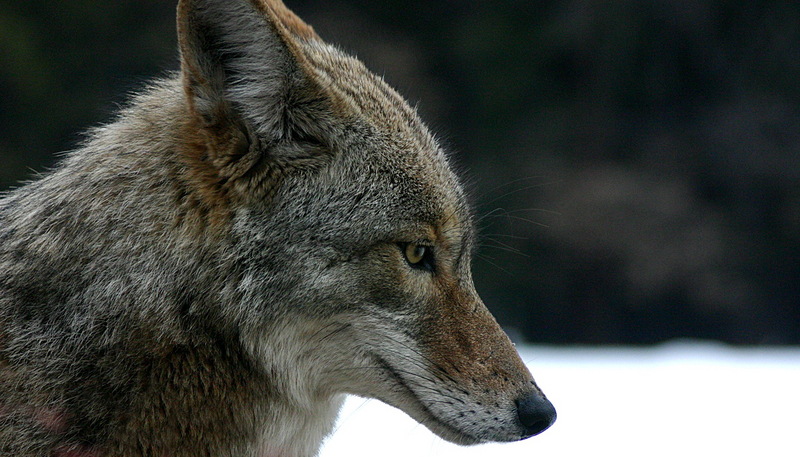|
| Query: vulpes fulvipes | Result: 6th of 6 | |
Family: Canidae - Wiki
| Subject: | Family: Canidae - Wiki
| |

| Resolution: 1280x731
File Size: 439230 Bytes
Date: 2004:02:13 03:51:45
Camera: Canon EOS DIGITAL REBEL (Canon)
F number: f/6.3
Exposure: 1/500 sec
Focal Length: 142/1
Upload Date: 2007:10:03 01:16:57
|
Family: Canidae - Wiki
Canidae
From Wikipedia, the free encyclopedia
[Photo] A Coyote (Canis latrans) in Yosemite national park, USA. Source: http://www.sxc.hu Date photo taken in Feb. 2004. Author Christopher Bruno (http://www.sxc.hu/browse.phtml?f=profile&l=vxdigital) Copyright (C) 2004 Christopher Bruno
Permission is granted to copy, distribute and/or modify this document under the terms of the GNU Free Documentation License, Version 1.2 or any later version published by the Free Software Foundation; with no Invariant Sections, no Front-Cover Texts, and no Back-Cover Texts. A copy of the license is included in the section entitled "GNU Free Documentation License". |
The Canidae (′kan??′d??, IPA: [??kæn??di]) family is a part of the order Carnivora within the mammals (Class Mammalia). Members of the family are called canids and include dogs, wolves, foxes, coyotes, dingoes, jackals, and lycaons. The Canidae family is divided into the "true dogs" (or canines) of the tribe Canini and the "foxes" of the tribe Vulpini. The two species of the basal Caninae are more primitive and don't fit into either tribe.
These animals are all digitigrades, meaning they walk on their toes.
Classification
Note that the subdivision of Canidae into "foxes" and "true dogs" may not be in accordance with the actual relations, and that the taxonomic classification of several canines is disputed. Recent DNA analysis has shown, however, that Canini (dogs) and Vulpini (foxes) are valid clades, which exclude two genera: Nyctereutes and Otocyon. These are basal canids and are not closely related to either vulpines or canines. (Some evidence also suggests the same for Urocyon.)
Speothos and Chrysocyon are primitive members of Canini, but might be placed in their own clade. Cuon and Lycaon may in fact belong in Canis, and there is evidence that Alopex and Fennecus are not valid clades, but are both part of Vulpes.
The Domestic Dog is listed by some authorities as Canis familiaris and others (including the Smithsonian Institution and the American Society of Mammalogists) as a subspecies of the Gray Wolf (i.e., Canis lupus familiaris); the Red Wolf, Eastern canadian wolf, and Indian wolf may or may not be full species; and the Dingo is variously classified as Canis dingo, Canis lupus dingo, Canis familiaris dingo and Canis lupus familiaris dingo.
Evolution
Miacids evolved into the Canidae family about 40 million years ago in the late Eocene to early Oligocene. Wolves, foxes, coyotes, jackals and eventually dogs all evolved from the Canidae family. The Canidae family evolved into three subfamilies: Hesperocyoninae (~39.74-15 Ma), Borophaginae (~36-2 Ma), and the Caninae lineage that led to present-day Canidae inclusive of modern-day wolves, foxes, coyotes, jackals and dogs (Canis familiaris). Similar to the ancestry of the dog was the Hesperocyoninae lineage that led to the coyote-sized Mesocyon of the Oligocene (38-24 Ma). Tomarctus, a wolf/dog-like carnivore, was a Borophaginae that roamed North America some 10 million years ago. From the time of Tomarctus, dog-like carnivores have expanded throughout the world. Cynodictis, also a Borophaginae, emerged about 20 million year ago in the Oligocene and also resembled the modern dog. Its fifth toe showed signs of shorting (signs of the development of the dewclaw). The fox-like Leptocyon was a descendant that branched off from the Caninae lineage. Although the civet resembles a cat more than a dog it is said to be a living resemblance of the Cynodictis (Wang, 1994; Wang et al. 1999).
FAMILY CANIDAE
Subfamily: Caninae
True dogs - Tribe Canini
Genus Canis
Side-striped Jackal, Canis adustus
Golden Jackal, Canis aureus
Himalayan Wolf, Canis himalayaensis
Indian Wolf, Canis pallipes or Canis indica
Coyote, Canis latrans (also called Prairie Wolf)
Gray Wolf, Canis lupus (2.723 Ma to present)
Domestic Dog, Canis lupus familiaris
Dingo, most often classified as Canis lupus dingo.
many other proposed subspecies
Red Wolf, Canis rufus, Canis lycaon, or Canis niger (hybrid?) (3 Ma to present)
Black-backed jackal, Canis mesomelas
Ethiopian Wolf, Canis simensis (also called Abyssinian Wolf, Simien Fox and Simien Jackal)
Genus Cynotherium †
Sardinian Dhole, Cynotherium sardous †
Genus Cuon
Dhole, Cuon alpinus or Canis alpinus (also called Asian Wild Dog)
Genus Lycaon
African Wild Dog, Lycaon pictus (also called African Hunting Dog)
Genus Atelocynus
Short-eared Dog, Atelocynus microtis
Genus Cerdocyon
Crab-eating Fox, Cerdocyon thous
Genus Dasycyon † ?
Hagenbeck Wolf, Dasycyon hagenbecki † ?
Genus Dusicyon †
Falkland Island Fox, Dusicyon australis †
Genus Pseudalopex
Culpeo, Pseudalopex culpaeus
Darwin's Fox, Pseudalopex fulvipes
Argentine Grey Fox, Pseudalopex griseus
Pampas Fox, Pseudalopex gymnocercus
Sechura Fox, Pseudalopex sechurae
Hoary Fox, Pseudalopex vetulus
Genus Chrysocyon
Maned Wolf, Chrysocyon brachyurus
Genus Speothos
Bush Dog, Speothos venaticus
True foxes - Tribe Vulpini
Genus Alopex
Arctic Fox, Alopex lagopus
Genus Vulpes
Red Fox, Vulpes vulpes (1 Ma to present)
Swift Fox, Vulpes velox
Kit Fox, Vulpes macrotis
Corsac Fox (or Steppe Fox), Vulpes corsac
Cape Fox, Vulpes chama
Pale Fox, Vulpes pallida
Bengal Fox, Vulpes bengalensis
Tibetan Fox, Vulpes ferrilata
Blanford's Fox, Vulpes cana
R??ppell's Fox, Vulpes rueppelli
Fennec, Vulpes zerda
Genus Urocyon (2 Ma to present)
Gray Fox, Urocyon cinereoargenteus
Island Fox, Urocyon littoralis
Cozumel Fox, Urocyon sp.
Basal Caninae
Genus Otocyon (present)
Bat-eared Fox, Otocyon megalotis (propably a vulpine close to Urocyon)
Genus Nyctereutes
Raccoon Dog, Nyctereutes procyonoides (propably a canine related to Speothos and perhaps Chrysocyon)
...
http://en.wikipedia.org/wiki/Canidae
| The text in this page is based on the copyrighted Wikipedia article shown in above URL. It is used under the GNU Free Documentation License. You may redistribute it, verbatim or modified, providing that you comply with the terms of the GFDL. |
|
^o^
Animal Pictures Archive for smart phones
^o^
|
|

